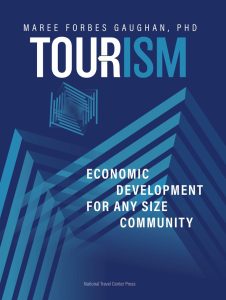According to business researchers IBIS World, there are approximately 7,500 organizations in the United States involved in destination marketing and management in one form or another, 9,500 involved in economic development, and approximately 13,000 Chambers of Commerce. Many organizations are now a combination of one or more of these organization types, using a vast variety of operating processes and procedures. As the marketplace becomes increasingly competitive, technology more pervasive, and visitors more demanding, it appears that a new skill base is needed to deal with the emerging conditions.
A survey of the education and skill base of 950 American destination marketing and management executive, marketing directors, and sales directors with profiles on LinkedIn, revealed that only 12% had formal tourism education with most of that in hospitality programs. Another 21% had business education. 17% had education in marketing and communications. The other 50% had degrees spanning all the way from interior design to divinity school, with everything in between, or held associate degrees or no degree at all.
It will be imperative for tomorrow’s (or even today’s) DMOs to apply skills in planning and strategy development to determine their own fate, engage in market targeting and segmenting to select the right customer base, and use goal setting and direct customer engagement in order to establish thriving, strategically focused organizations that produce real results. It will be very important to master these skills as soon as possible. Without the ability to effectively make the changes needed to compete in the competitive and ever-growing marketplace, DMOs across America will be rendered irrelevant, go out of business or be combined into larger regional organizations.





